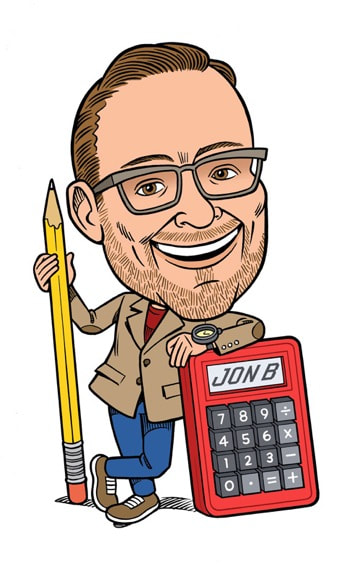|
Common Sense Comments for Workplace Retirement Plans Some people love to shop — love the challenge of hunting for the best deals and scoring the highest-quality stuff for the lowest possible price. Perhaps you’re like this. Even if you’re not, you’d probably still want a power shopper in your corner when making big-ticket buying decisions. Others have so much money that they don’t care. They buy what they want, when they want it, and don’t even look at the price tag. You probably wouldn’t want this sort of person making big buying decisions on your behalf. Unfortunately, that may well be happening with one of the most important shopping decisions of your life — which investments to put your retirement savings in. It’s an issue so critical that the Supreme Court recently weighed in on it, in a decision that could change 401(k) plans forever.
Here’s how your typical workplace retirement plan comes into being: Someone high up at the company decides to start a 401(k) plan, or something like it. The structure of the plan is established upfront, usually by whomever the company has chosen to manage the plan, and seldom looked at again. All the features — such as who gets to contribute, when they can open their accounts, the investment options and so on — are all pretty much dictated by whoever is holding the money and running the plan. They usually make their money off the investments. This means that a mutual fund company, for instance, might offer a 401(k) plan in order to be able to sell more of its products. It also means that it probably doesn’t want to offer too many really cool features in the plan, because they just add cost and reduce profit. More important, the people at the mutual fund company would like to offer you the most expensive investments they think they can get away with. You might expect them to try to pull this if it was just one person (you) investing in the plan. But you’re part of a company’s worth of people. That should give you and your co-workers purchasing power. Think of purchasing power like this: Imagine going to a car dealer to buy a car. You’ll try to get the best price you can. Now imagine showing up at that dealership with a hundred other people also looking to buy. Now you can tell the dealership to come down on price or you’re going to head on over to another dealership. It would be nice if you could do the same thing with your 401(k). But too often, it doesn’t happen. Without an interested, skilled, and objective person within your company or a neutral advisor to your plan, you might not have anyone working fee negotiations. Companies that offer 401(k) plans with the objective of selling you products have done a few things very well over the years to protect their profit. They’ve created so-called direct offerings, which allow a company to fill out a simple form and, poof, have a plan full of investments to offer and a call center to answer employees’ questions. Never mind what it ultimately costs investors in the form of fees. These plan providers have also recognized that a really smart plan advisor might try to negotiate lower fees or reduce the cost of the investments by switching to a less-expensive investments. Plan providers created a couple of ways to pay off such advisors, in addition to the regular compensation they might receive. We’ll talk about “overrides” and “finder’s fees” some other time. They’re both just fancy ways of taking the advisor out of the price-shopping equation. Here’s where the Supreme Court comes in. In a unanimous ruling this year in the case known as Tibble Vs. Edison, the justices said: Not so fast. Someone has to be responsible for monitoring all of this to be sure our great American workers are well taken care of, and not just when the decisions are made, but for many years to come. In other words, the Supreme Court indicated that someone must be responsible for making sound decisions and then monitoring them as years go by and circumstances change. And who are they pointing to? Good question! You might think it’s the plan providers. But mostly, it’s the companies offering the plans — the employers. Efforts are also afoot to redefine the role of plan advisors and force them to work only in their clients’ best interests. You’ll find a lot more on this by looking up “fiduciary rule.” Making all retirement plan advisors culpable for their actions makes a lot of sense. After all, plenty of companies don’t have the technical sophistication and staff to master ongoing fee negotiations and services agreements. Major financial firms are fighting back, however, suggesting that holding their employees accountable for the work they do for (and the money the make from) retirement plans would ultimately hurt the small investor. This debate is ongoing. Watch for more new on it and, by all means, let your Legislators know how you feel about it. So, why aren’t the issuers of the products — the plan providers — being held accountable already, you ask? That’s easy: because the contracts that employers sign to start and maintain a plan specifically indemnify the providers. Imagine heading to the mall with a personal shopper, and as you’re about to hand her your credit card, she says, “You do understand that I’m under no obligation to get you anything you really need, or at a price you can really afford, right?” Now imagine that instead of just shoes or a new coat, you’re talking about investments that will ultimately determine your ability to retire comfortably. © Jonathan R. Broadbent and Plan Partners LLC Comments are closed.
|
Caricature of Jonathan Broadbent by David Helton
Topics
All
|


